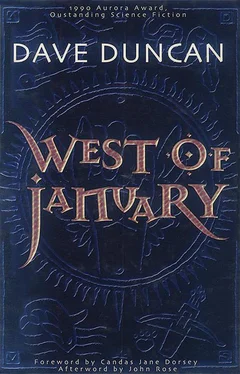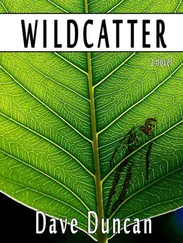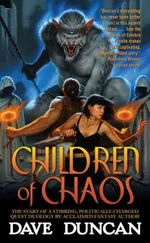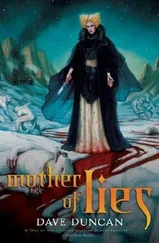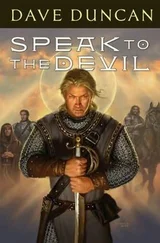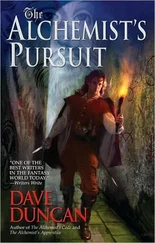He was never idle, never at peace. Mostly he rode his horses, each in turn, tiring them long before he tired himself and endlessly scouting the countryside for signs of strangers—strangers were dangers. Of course, we children did not know that. I remember him returning once with blood on him. The women told us that he had fallen, but probably he had taken an arrow.
He wore boots and leather breeches. In wet weather he would add a poncho and a broad-brimmed hat. A knife hung at his belt, a sword and bow by his saddle. He practiced his archery often, letting us boys watch him and run to retrieve his shafts, but never allowing us to try for ourselves. Slingshots were permitted—indeed, we were encouraged to become proficient with them. A sling is a good weapon against small game and predators, but only at close range. Arrows carry farther. Thus he taught us the principle of archery, but withheld the skill. He never explained the reason for that, and we should not have believed him if he had.
His face I can still see clearly, but always outlined against the roof of a tent or against the sky. His hair and beard were dark and flowing, and the glitter of his black eyes was the terror of my dreams. More imposing than anything else in my existence, even the landscape itself, my father ruled his family without raising voice or hand. No one ever hesitated or questioned. He was impassive and rarely spoke, but by the standards of the herdfolk he was a good man. He must have had a name, but I don’t know what it was.
He spent much of his life on horseback, scouting the land in all directions. A horse is a four-legged, two-eyed mammal, much smaller than a woollie, but much faster. Horses were another symbol of wealth, and eventually my father had three of them.
So we knew that children grew larger, and we knew what women did, and we boys respectfully studied my father. As I said before, he was a good man by his own standards. He was kind to me, without cause. Disposing of unwanted babies is an ancient and widespread human custom but he had let me be, although he must have known I was not his. I was always small for a boy. I had gold hair and blue eyes, unlike everyone else in the family.
No, he was not my father, but I can think of him in no other way. I used to think his name was “Sir,” until I heard him use that word himself to a trader.
Traders were rare, although more common than angels. We saw their caravans only from afar and their womenfolk not at all. Likewise, whenever traders were around, my father would order his older daughters and his women into the tents. Trading was done on neutral ground, with us boys trotting to and fro, carrying out the cloth or yarn my father sold, bringing in the wares he bought. I remember it as being hard work, for woollie wool is heavy. I envied those wealthy traders with their many horses.
Traders seemed very small men to us herders, but very grandly dressed. Their shirts were exploding rainbows of color; their trousers garishly decorated with beadwork and piping. They wore short pointed beards, and hats with curled brims, and jeweled swords dangling at their sides.
Small or not, they frightened me—I was scared my father would trade me off for something. That is not as foolish as it sounds, for the traders often had girls to offer. He bought his fifth woman, Rantarath, from traders. I was old enough to notice how much cloth she cost and young enough to think she could not possibly be worth it. But my father never sold off his surplus daughters—he gave them away to his sons, which in a herdman was true generosity. What he did trade was cloth and wool. In exchange he acquired pots and tools, dyestuffs and medicines…a new sword once, I recall…a better horse. Our needs were simple.
The sun always shone. Rain became scarce as I grew older. Life continued with few interruptions to mark its passing. We ate when we were hungry and slept when we were sleepy—outdoors, curled up on the sun-warmed grass by the tents. Except on a move, there would always be some of us asleep and some awake, but the life of the camp continued regardless—children singing, pots clattering, the click of looms, the crack of wood chopping, the laughter of the toddlers.
Only when my father was sleeping were we told to keep quiet. He never slept alone. He honored each tent in turn, playing no favorite—unless, of course, a woman was due to conceive again and needed special attention. It might seem like a very fine life for a man, if the risks were not considered.
He knew the risks and he took precautions. He scouted far, studying the grass to see where other herds might have passed recently. He watched, too, for roo packs, although once in a while roos would slip by him and come bounding through the camp, hoping to catch an undefended toddler. Woollies were armored against roos, but we were not. Often my father would return with a dead roo dangling from his saddle and a bloodstained arrow in his quiver. Roo meat was second only to dasher in flavor, and their leather is the finest of all.
Those roo attacks were landmarks in an otherwise uniform existence. There were few others—visits by angels or traders, other herds passing in the far distance. And puberty.
My older brothers and sisters disappeared, two by two. Imperceptibly I became one of the oldest. Traders became rarer and angels more common. Trouble is angels’ business. They knew what was happening. They must have told my father, but he may not have believed.
We children certainly knew nothing of that. I had been born in January, when the sun had been roughly over the January-December line. Now we were into February, and the sun stood high to the east, apparently motionless and unchanging. Yet the winds grew lighter, ponds rarer, rain less frequent. The grass was sparser, more grazed by other herds; dungheaps were more numerous. My father must have been finding greater and greater difficulty in directing our progress.
On the face of it, he was prospering. He had more woollies for milk and meat. More food would support more women to breed more children to herd more woollies. The other herdfolk prospered also.
But the sun does move, and ahead of us lay the March Ocean—and inevitable disaster.
WE HAD NO WAY TO MEASURE time except by eating and sleeping. What clock could be less reliable than a growing boy’s stomach? Yet four landmarks defined the end of my childhood, and they seem in retrospect to have stood very close together.
My oldest brother, Aloxth, had gone. The next, Indarth, would soon follow him out into the great world. Being one of the older lads now, I was aware of what must happen, but it worried me as little as death, for it seemed as remote. Yet the time came when I discovered Indarth cowering behind a woollie, sobbing in terror. He showed me the damning evidence he had just discovered, and I swore not to tell. Yet I spared him little sympathy, for we two had never been close. Indeed, I obtained some amusement from noting how thereafter he avoided my father’s presence and how he held his elbows close to his sides, trying at the same time to disguise the increasing breadth of his shoulders. His sense of guilt must have been obvious to the adults, and probably all the other loners in their turn had done the same. As I have said, our father was a kindly man, and he always gave his sons as much time to grow up as decency permitted. Indarth s terror was the first of my four landmarks.
Having no sense of time, I could not comprehend the difference between growing older and growing bigger. I was small and did not appreciate my danger. Talana’s son Arrint was larger than I was, so I assumed that he must go next, after Indarth. Then, once, while bathing in the pond, I glanced down at my groin. There have been few events in my long life that frightened me more than seeing that sheen of golden fuzz. Hastily I checked my armpits. So far they were innocent, but I had enough sense of time to know that they must soon follow. Now terror stalked me, also; thereafter I was much less interested in childish behavior such as splashing around in water. That was the second landmark.
Читать дальше
